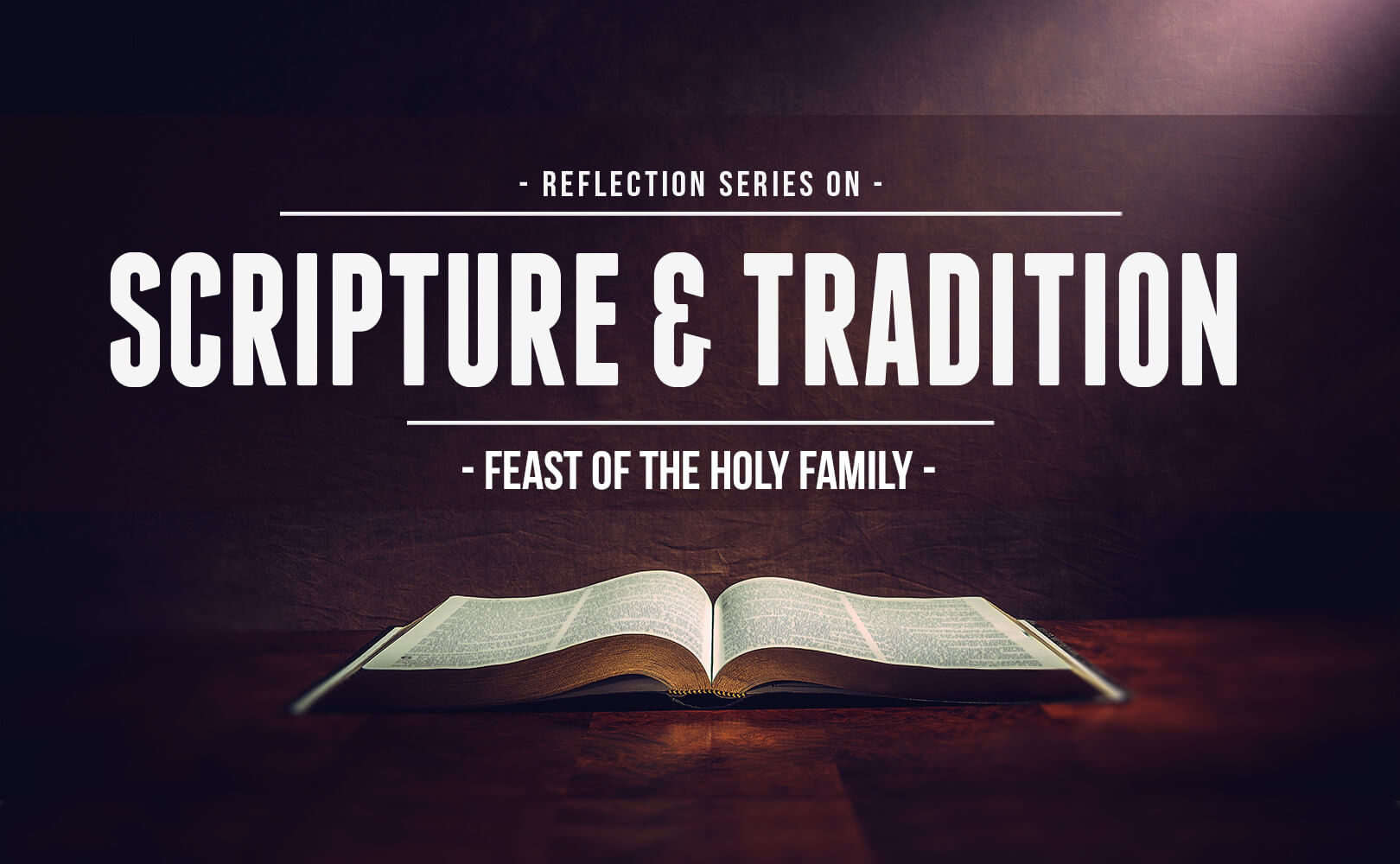Epistle: Colossians 3:12-17
Gospel: Luke 2:42-52
O Lord Jesus Christ, who when Thou wast subject to Mary and Joseph didst sanctify the home life with ineffable virtues: grant that by their assistance, we may be instructed by the example of Thy Holy Family and become partakers of their eternal happiness.
– From the Collect for the Feast of the Holy Family
In today’s individualistic culture, many people think that the individual is the basic unit of society. But in reality, it is the family, not the individual, that forms the fundamental unit of human living.
In the beginning, God said “It is not good for man to be alone” (Gen 2:18), revealing that we were made for community. The community we are called to reflects, in a sense, the fundamental community of the Triune God. Just as God in His Three Persons is never “alone,” so too are we not to be alone. This is true from the beginning of each person’s existence, as we are first connected to another person—our mothers—and then are born into a community of people, the family.
When God the Son became man, he wanted to experience the fullness of human existence. He did not appear suddenly as a full-grown man; no, he was conceived in the womb of a woman and then born into a family—the family par excellence, the Holy Family. He lived with his family until he was ready to begin his public ministry, spending each day with them, learning from them, and helping in the daily tasks of family life in his time. But most mysteriously, Jesus “was subject to” his parents, Joseph and Mary. Even though Mary is the greatest of creation and Joseph was “a just man” (Mt 1:19), they were still mere creatures, nothing compared to the God-Man Jesus Christ. Yet “Christ, to whom the whole universe is subject, was subject to his parents” (St. Augustine, Sermons 51, 19).
St. Paul describes the ideal attitude toward family life in Sunday’s Epistle: “Put ye on therefore, as the elect of God, holy, and beloved, the bowels of mercy, benignity, humility, modesty, patience: bearing with one another and forgiving one another if any have a complaint against another.” This is what Jesus did: imagine the mercy, benignity, humility, modesty, and patience necessary for Our Lord to stoop down to the level of his creation, being obedient to his creatures, all in order to save us. It would be like us making ourselves subject to ants.
As St. Paul writes elsewhere (Phil 2:3-11), our humility must model itself on Christ’s humility. Many teenagers today are (rightly) criticized for thinking they know better than their parents, even when they have not yet gained the wisdom to know better. Yet how often do each of us have a similar attitude, believing ourselves more knowledgeable and more wise than our superiors, and thus refusing, at least in our hearts, to be subject to them? Yet Christ himself—who was infinitely more knowledgeable and wise than any creature—made himself subject to his human parents. Our pride resists humility, but as the Scriptures say, “God resists the proud, and gives grace to the humble” (Jas 4:6). Humility is not only a necessary component for a peaceful family life, but also to be in God’s good graces.
The Feast of the Holy Family is a good reminder of the importance of living in community, and the humility necessary to do so without conflict. Let us model ourselves on Our Lord, who humbled himself not only to become a man, but even an obedient child.


